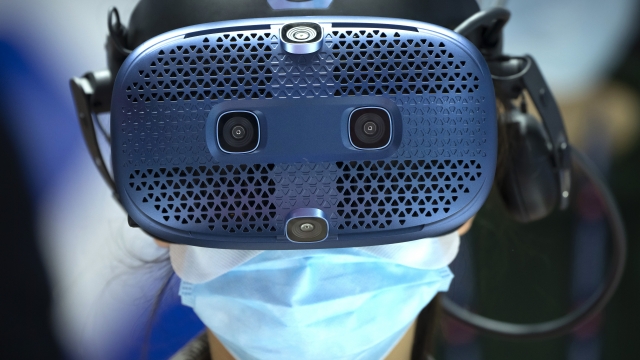The metaverse opens a door to a whole new world of virtual reality.
“This is the defining quality of the metaverse," Mark Zuckerberg, Meta founder, said. "You're going to really feel like you're there with other people."
But as some walk through that door, they’re finding familiar problems, despite a promise from tech leaders like Zuckerburg.
“Privacy and safety need to be built into the metaverse from day one," he said.
For the past five years, Nina Jane Patel has researched how technology shapes our human interactions and the psychological impact of immersive experiences.
"This is something women have been putting up for decades now, and it's just an acceptable part of the internet," Patel said. "My question is, why is it acceptable?"
Despite her years of research, she still wasn’t fully prepared for what happened when she went into Facebook’s Metaverse platform, Horizon Venues.
"Within 60 seconds of entering, I had three male avatars surround me and their male avatar voices, very close to me, making verbal harassment, sexual harassment, and then taking photos of touching my avatar in what I can only call as a sexual assault in the virtual space," Patel said. "Our fight or flight response comes in, and I froze and couldn't, you know, manipulate my headset quickly enough."
Patel’s experience brought Silicon Valley entrepreneur Aaron Stanton back to 2016, when a gamer described being groped in a virtual reality game he co-created.
"I remember feeling really frustrated, angry at the person who was doing the harassing, the powerless of it," Stanton said. "Then he really surprised by the general community's response to it."
Days later, he, himself, experienced virtual groping in another game.
And they’re not alone. Other users have reported similar concerns in virtual reality. Which begs the question, what about kids on these platforms?
Common Sense Media just released a report that found 17% of kids between 8 and 18 in the U.S. have a VR headset, and an even larger percentage have tried virtual reality.
The same report outlines dangers for kids, including sexual content and abuse.
The nonprofit Center for Countering Digital Hate released similar research in December.
They spent more than 11 hours in a third party program called VR chat. They say they spotted bullying, sexual harassment, threats of violence and more.
Stanton says the VR tools can be used to combat the problems, without just telling users to take off the headset.
"We have the ability with VR to interrupt the negative formation of this moment to replace it with something that makes you feel more capable," Stanton said. "It should never happen at all, of course, but if it does, somehow you come out of it feeling like yeah, you can handle yourself."
In a statement to Newsy, Meta says they introduced a personal boundary in Horizon Worlds and Horizon Venues to make it easier to avoid unwanted interactions. It goes on to say they will continue to make improvements, including unveiling parental tools this month.
People like Stanton and Patel want a more complex, industry-wide conversation.
"We can solve this problem," Patel said. "We can build a Metaverse that offers safety as its priority and allows children to interact with one another in safe environments, and we can trust that there aren't people in there that shouldn't be in there. It's entirely possible, and it's not the technology that's holding us back."
Patel says she’s still 110% pro-Metaverse and is excited about the doors virtual reality can open for the future. But, she says now is the time to make it a safe environment.
Starting this month, Meta will introduce new tools for parents to make it possible to block certain apps from kids, and next month, Meta says it will automatically block teens from downloading age-inappropriate apps.


